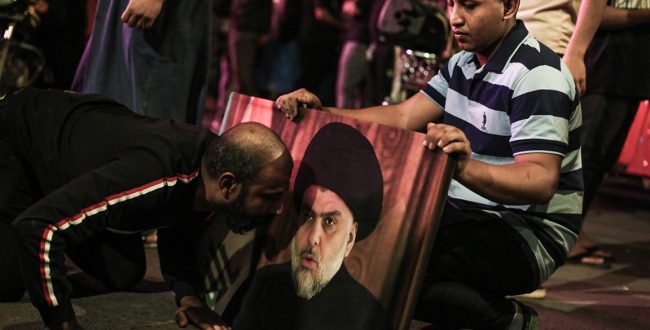Sara Hirschhorn
Last week, Forward Magazine named Barack Obama their honorary winner of the “Forward Fifty,” a list of 2011’s fifty most influential Jewish Americans in the spheres of politics, religion, business, culture, sport, activism, and the media.
If the honor roll is billed as an “impressionistic picture of the American Jewish story during a given year” then, Forward editors opined, “support him, loathe him or feel wildly ambivalent — whatever you think of Barack Obama, the 44th president of the United States has done more than any other non-Jew we can think of to shape the American Jewish story in 2011.” The award focused mostly on Obama’s contribution in regards to U.S. policy toward Israel. It is perhaps no coincidence that the President was the 51st candidate – as Israel itself is often referred to as America’s 51st state. Since its announcement, this bonus inclusion has sparked debate across the blogosphere — just another example of the constant kvetching of “but is it good for the Jews?” that has characterized the Barack Obama presidency.
Forward’s editors themselves alluded to a curious recent move by two pillars of the American-Jewish establishment to shush the naysayers. Two weeks ago, the Anti-Defamation League (ADL) and American Jewish Congress (AJC) announced a ‘National Pledge for Unity on Israel’ which stated its belief that “the U.S.-Israel relationship should never be used as a political wedge issue,” and called for the Jewish community to “reaffirm that Israel’s well-being is best served, as it has always been, by American voices raised together in unshakeable support for our friend and ally." The subtext of this statement — decried by Jewish groups on left and right – was that criticism of Obama should not be tolerated during the campaign season.
The censorship of free speech implicit in this announcement struck me not only as un-American but as distinctly un-Jewish! Since when do the yentas of the organized Jewish community come out against campaign kibbitzing? This led me to speculate that there could be a quid pro quo between the ADL-AJC and the Obama administration. And what might this be? I would like to suggest that the connection has to do with American Jewry's three sacred Ps:
Pollard – On regular intervals, the Jewish-American establishment resurrects its favorite cause célèbre, Jonathan Pollard, who is quickly approaching his 25th year in prison. Might Obama consider the silencing of his critics and the addition of some much-needed ballots (especially in heavily Jewish swing-states like Florida) a fair trade for Pollard’s release? In my estimation, the ADL-AJC unity pact is unlikely to influence enough voters to deliver tangible outcomes for the administration to trade a big fish like Pollard. Unfortunately for Pollard, I expect him to be watching the campaign from his jail cell.
Palestine — The Palestinians' recent U.N. bid to recognize a sovereign Palestine has caused much unholy indigestion in Jewish circles. Would the Jewish establishment be willing to wash its mouth out with soap in exchange for a U.S. veto at the Security Council? This scenario, too, strikes me as improbable, as the quid pro quo is more likely between Israel (on settlements) and the Obama administration than with the American Jewish community. Moreover, since the U.S. has apparently engineered a stalemate at the UN that likely won’t require it to cast a vote, there is little to be gained in a backroom deal at Abe’s house.
Pressure — This leaves the “rugelach in hand is worth a knish in the bush” strategy of American-Jewish politics. The unity pact can easily be seen as a small concession to Obama that costs the Jewish establishment nothing but could pay great dividends in the future. An empty gesture of rhetorical restraint now for the ability to call in a favor later seems like the most plausible explanation for this arrangement.
While I caution that the idea of a quid pro quo is only uninformed and harmless speculation, the organized Jewish community has staked a large political bet on Obama’s future. In upholding this unity pact, it risks both losing its voice and an election. Surely the editors of the Forward Fifty would agree that no Jewish leader makes their list by keeping their mouth shut. Maybe next year the 51st award should celebrate the ‘cukleffel of the campaign’ instead.















